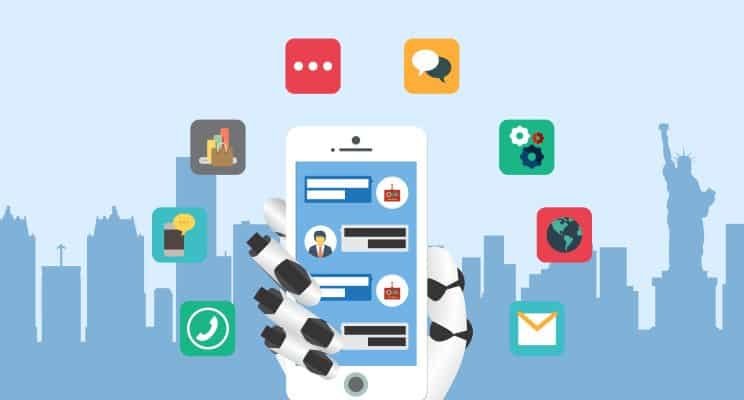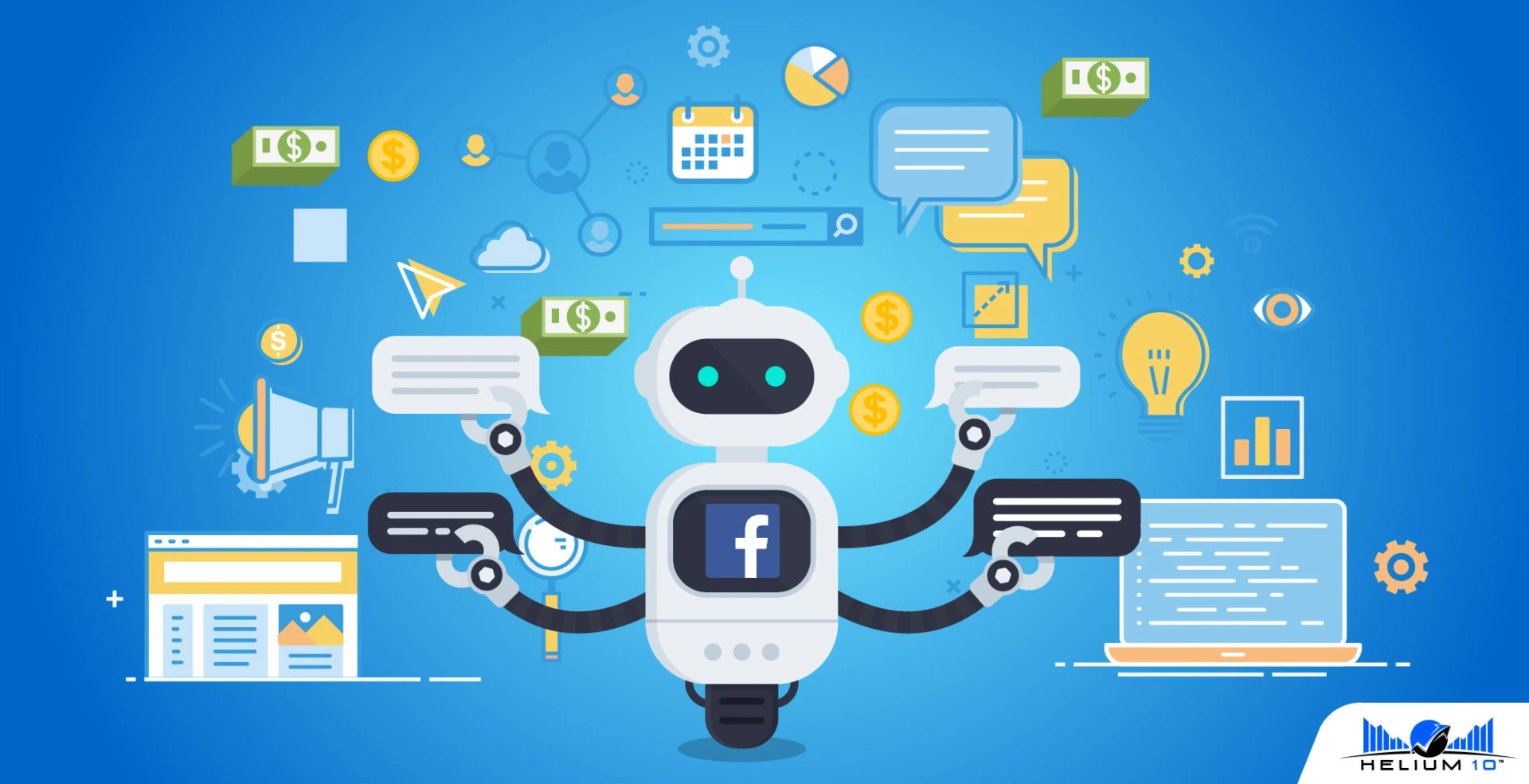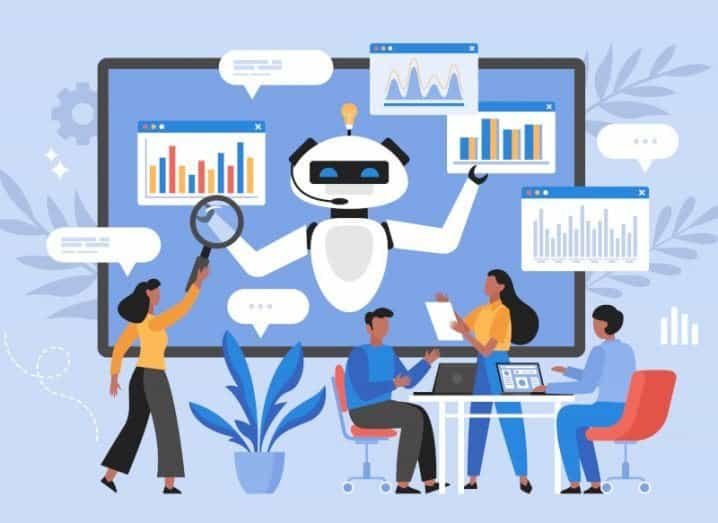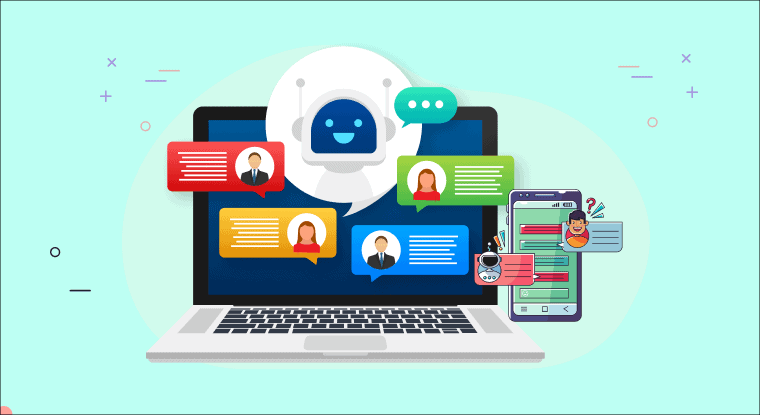Marketing in the education sector has evolved, and utilizing chatbots for personalized online course marketing strategies is one of the most effective ways to engage potential students. By leveraging advanced algorithms and machine learning, you can create chatbots that provide tailored recommendations and support, enhancing your outreach efforts. These intelligent assistants not only streamline communication but also foster meaningful connections with prospective learners, ensuring they find the courses that best meet their needs. In this blog post, you’ll discover how to implement chatbots effectively in your online course marketing campaigns. By incorporating chatbots into your online course sales strategies, you can respond to inquiries in real-time, significantly reducing dropout rates during the enrollment process. Additionally, these chatbots can gather valuable data on user preferences and behaviors, allowing you to refine your marketing approach and better target your audience. With a well-integrated chatbot system, you can not only boost engagement but also drive higher conversions and overall course sales.
Key Takeaways:
- Enhanced Engagement: Chatbots create a more interactive experience, allowing potential students to engage in personalized conversations that can address their specific educational interests and requirements.
- Tailored Recommendations: By analyzing user data, chatbots can provide customized online course suggestions, helping users discover programs that align with their career goals and preferences.
- 24/7 Availability: Chatbots can offer support and information around the clock, ensuring that potential students have access to resources and assistance whenever they need it, improving their overall experience.
Understanding Chatbots in Education
Before exploring into the transformative role that chatbots can play in educational marketing strategies, it’s crucial to grasp their fundamental characteristics. Chatbots are intelligent programs designed to interact with users in a conversational manner, employing natural language processing (NLP) to interpret and respond to inquiries effectively. In the educational landscape, these chatbots can analyze student data, preferences, and interactions to provide tailored responses, making them invaluable tools for online course marketing. By engaging with prospective students on your website, chatbots can recommend relevant courses or programs based on individual interests, ultimately guiding them through the enrollment process.
Defining Chatbots and Their Functionality
Education institutions can leverage chatbots to enhance their outreach and student engagement efforts. These AI-driven assistants can operate on various platforms, from websites to social media, ensuring that students receive assistance anytime. By automating responses to frequently asked questions, chatbots help you streamline communication, reduce waiting times, and provide a personalized experience that resonates with potential students. As they gather insights from user interactions, they can refine their recommendations, making each interaction uniquely beneficial for the user.
The Role of Chatbots in the Learning Ecosystem
Learning is a dynamic process that thrives on interaction, engagement, and support. In the educational ecosystem, chatbots serve as crucial tools that bridge the gap between prospective students and the resources they need. These chatbots can initiate conversations by providing information about online course offerings, admission requirements, and even financial aid options. Their ability to operate 24/7 ensures that you can meet learners’ needs, regardless of time constraints, thereby increasing accessibility and support for students.
Ecosystem-wide, chatbots enhance the overall learning experience by facilitating interactions that are timely, relevant, and personalized. They can follow up with students who have shown interest in specific courses, offer insights based on their backgrounds, or even connect them to academic advisors for further discussion. By integrating chatbots into the broader educational framework, you not only enrich student interactions but also foster a supportive learning environment that encourages exploration and growth.

The Importance of Personalization in Online Course Marketing
Assuming you are in the education sector, personalizing your marketing approach can significantly enhance your connection with prospective learners. In a world where generic marketing messages often go unnoticed, personalized marketing allows you to resonate with your audience on a deeper level.
By utilizing tools like chatbots, you can deliver tailored experiences that address the unique needs and preferences of individual learners. For further insights into the capabilities of chatbots, check out How to Use Chatbots in Marketing – An Honest Guide
Benefits of Personalized Marketing
One of the most compelling benefits of personalized marketing in online course promotion is the ability to increase engagement. By offering tailored recommendations based on users’ interests and previous interactions, you can make your educational offerings more relevant. This approach not only captures attention but also encourages potential learners to take further action, such as signing up for your courses or requesting additional information. Ultimately, this leads to higher conversion rates and improved return on investment (ROI).
How Personalization Affects Learner Engagement
Benefits of personalized marketing extend beyond initial impressions; they play a crucial role in sustaining learner engagement throughout the decision-making process. Personalization creates a dialogue with potential students, allowing you to address their concerns, answer their questions, and present information that is directly relevant to their needs. This proactive communication fosters a sense of connection, enhancing the likelihood of conversion and building trust in your brand.
Personalization is especially effective when it comes to maintaining learner engagement. When you tailor your messaging and online course offerings, you show potential students that you understand their unique challenges and aspirations. This reinforces their interest and motivation, making them more likely to choose your online course over others. By implementing personalized strategies in your marketing efforts, you not only enhance engagement but also cultivate long-term loyalty in your learning community.
Strategies for Implementing Chatbots in Online Course Marketing
For educators and institutions looking to enhance their onlline course marketing efforts, implementing chatbots can be a game-changer. Chatbots not only provide a level of personalization that can significantly enhance user engagement but also automate many tasks, thereby freeing up valuable time. You can explore more about how to effectively implement chatbots by checking out The Complete Guide to Chatbots for Marketing. With the right strategies in place, you can leverage this technology to foster better relationships with prospective students and provide them with the information they need to make informed decisions about their education.
Designing Conversational Flows
An effective chatbot should have a well-thought-out conversational flow that mimics a human-like interaction. As you design these flows, consider the specific questions and concerns your prospective students may have about the courses you offer. Crafting dialogues that are not only informative but also inviting can keep users engaged and foster a sense of connection. This personalized approach not only enhances their experience but also increases the likelihood of conversions as they are more inclined to explore your courses further.
Integrating User Data for Tailored Interactions
To maximize the effectiveness of your chatbot, consider integrating user data into your strategy. By analyzing previous interactions and preferences, chatbots can provide bespoke online course recommendations, ensuring the communication feels tailored to individual users. A chatbot that remembers user interactions and utilizes that information can significantly enhance the overall customer experience, making prospective students feel valued and understood.
User data plays a vital role in creating a personalized experience, which can lead to higher retention rates and increased enrollments. By leveraging insights from previous interactions, you can design your chatbot’s responses to reflect the specific interests and needs of your prospective students. This approach allows you to engage with them on a deeper level, ultimately guiding them through the decision-making process and encouraging a lasting relationship with your institution.

Enhancing User Experience with Chatbots
After realizing the potential of chatbots, you can see how these intelligent tools are revolutionizing user experience in personalized online course marketing. With chatbots, your customers can enjoy a seamless interaction that feels tailored to their unique needs and preferences. By leveraging advanced algorithms and machine learning, chatbots can provide insights and recommendations that align with your audience’s interests. According to research, businesses that utilize personalized chatbots experience increased engagement and customer satisfaction, making them an important tool in your marketing arsenal. For more insights, check out How AI Chatbots Elevate Your Marketing Strategy.
Real-Time Support and Assistance
Real-time support is one of the most compelling advantages offered by personalized chatbots. By being available 24/7, chatbots provide you the ability to assist your customers anytime they need help, eliminating the frustration of waiting in line or dealing with complicated customer service processes. This immediate access to information and assistance can dramatically enhance the overall user experience, making it more likely that users will continue to engage with your courses and content.
Your audience will appreciate the efficiency of real-time support, as chatbots can analyze previous interactions and provide quick answers or direct queries to the right resources. By implementing this technology, you not only streamline the assistance process, but you also show your commitment to customer satisfaction, which can lead to improved loyalty and retention rates.
Delivering Customized Course Recommendations
Enhancing the learning journey through customized course recommendations is another significant benefit of chatbots. By analyzing user data, preferences, and previous interactions, chatbots can suggest relevant courses that align with your audience’s individual goals and interests. This personalized touch not only adds value to the user experience but also increases the likelihood of course enrollments.
Delivering tailored course recommendations means that a student searching for industry-specific skills or new learning pathways receives immediate suggestions based on their interests. This customized approach can make all the difference when it comes to converting casual visitors into committed learners. By showcasing the courses most relevant to their aspirations, chatbots increase engagement and drive higher conversion rates, reinforcing the effectiveness of your personalized marketing strategy.
Measuring the Effectiveness of Chatbots in Course Marketing
Not all chatbots are created equal, and it is crucial to measure their effectiveness to ensure that your marketing strategies are yielding the desired results. By understanding metrics that matter, you can assess how well your personalized chatbots are engaging potential students and driving enrollments. It’s crucial to identify and track the most relevant key performance indicators (KPIs) that can provide insights into your chatbot’s impact on your marketing efforts.
Key Metrics to Track
Measuring the effectiveness of chatbots in course marketing requires you to track several key metrics. Start with user engagement rates, which can include conversation length, the number of interactions per session, and the completion rate of conversations. Additionally, monitor conversion rates, such as the percentage of users who transition from engaging with the chatbot to signing up for a course. Collecting data on these metrics will give you a clearer picture of how effectively your chatbot is interacting with potential students and facilitating their journey toward enrollment.
Analyzing Student Feedback and Engagement
For effective chatbot marketing, you should also prioritize analyzing student feedback and engagement. Pay attention to qualitative feedback gathered through post-interaction surveys or ratings that allow users to express their satisfaction with the chatbot experience. This feedback can reveal insights into areas where your chatbot excels and pinpoint aspects that may require improvement. Furthermore, tracking engagement metrics such as the frequency of user return interactions can help you gauge how well your chatbot resonates with your audience and meets their needs.
Effectiveness extends beyond mere engagement stats; it hinges on how well your chatbot resonates with potential students. By reviewing feedback trends, you can identify common pain points or questions that users have, allowing you to refine your chatbot’s responses and content offerings. Additionally, understanding which features or recommendations led to higher satisfaction will empower you to optimize your chatbot strategy further and enhance the overall course marketing experience. By continuously refining your chatbot based on solid metrics and actionable feedback, you position your marketing efforts to achieve better results and elevate your institution’s standing among prospective students.

Challenges and Best Practices
Once again, the integration of personalized chatbots into your marketing strategies comes with its fair share of challenges. One significant hurdle is ensuring that the chatbot technology aligns seamlessly with existing marketing frameworks and customer relationship management systems. Additionally, user acceptance is critical; if your audience does not perceive the chatbot as a valuable tool, then the effectiveness of your personalized interactions may diminish significantly. To overcome these hurdles, you need to thoroughly assess your technology stack and invest time in user testing to gauge acceptance and usability before full deployment. Remember that a chatbot that does not meet user expectations can lead to frustration and decreased engagement instead of the intended benefits.
Overcoming Technical and User Acceptance Challenges
Practices aimed at overcoming technical and user acceptance challenges involve a dual approach: first, ensure that your chatbot is integrated with reliable data sources that reflect real-time customer preferences and behaviors. This will allow the bot to provide accurate recommendations and responses, fostering trust and satisfaction among users. Second, conducting extensive user testing can showcase how your chatbot addresses common queries and supports the decision-making process, helping to drive adoption and engagement. Remember to also seek feedback to continuously refine and enhance the chatbot experience.
Best Practices for Successful Chatbot Implementation
The key to implementing a successful personalized chatbot lies in designing an intuitive user experience and continuously optimizing the chatbot’s performance based on customer interactions. Start by defining clear goals for what you want the chatbot to achieve within online course marketing, whether it’s increasing enrollment or improving customer service. Ensure that your chatbot employs natural language processing to understand user queries accurately and respond in a conversational tone, as people appreciate engaging interactions. Additionally, make use of rich analytics to analyze chatbot performance and customer feedback, allowing you to fine-tune its capabilities over time.
User trust is crucial for the successful implementation of chatbots. You should focus on transparency, letting users know they are interacting with a chatbot, and provide easy access to human support if needed. Complement your chatbot with engaging and personalized follow-up messages or calls to action that encourage user interaction and enrollment. By actively listening to user feedback and adapting your chatbot’s features accordingly, you can create a dynamic marketing tool that enhances customer experience while driving conversion rates in your online course offerings.
Conclusion
Now that you understand the transformative potential of utilizing chatbots for personalized online course marketing strategies, it’s crucial to consider how these tools can enhance your engagement with prospective students. By leveraging advanced algorithms and machine learning, you can design chatbots that cater to individual preferences, answer questions in real-time, and provide tailored recommendations based on user data. This interaction not only streamlines the enrollment process but also fosters a deeper connection between your institution and potential learners, enhancing their overall experience.
As you implement personalized chatbots into your marketing strategy, remember the advantages of 24/7 availability and the ability to automate routine inquiries. By providing immediate access to information and support, you position your courses as user-friendly and accessible, which is vital for attracting and retaining students. Ultimately, integrating chatbots into your marketing efforts can lead to increased enrollments, improved customer satisfaction, and stronger relationships within your educational community, paving the way for sustained success in your marketing initiatives.
FAQ
Q: How can chatbots enhance personalized marketing strategies for online courses?
A: Chatbots can significantly enhance personalized marketing strategies for courses by offering tailored content and support to prospective students. They can engage visitors by asking questions about their learning preferences, interests, and goals, thereby gathering valuable data that enables the chatbot to recommend specific courses or educational resources. Additionally, chatbots can provide instantaneous responses to inquiries about online course details, facilitating decision-making for potential students. This personalized interaction creates a more engaging user experience, increasing the likelihood of enrollment.
Q: What data do chatbots use to personalize marketing for educational courses?
A: Chatbots utilize various data types to personalize marketing for educational courses, including user demographics (age, location, etc.), previous interactions (courses viewed, questions asked), and expressed preferences (learning style, subject interest). They may also integrate with customer relationship management (CRM) systems or learning management systems (LMS) to access a broader range of data. By analyzing this information, chatbots can formulate personalized recommendations, follow-up messages, and marketing content aimed at converting leads into enrolled students.
Q: Can personalized chatbots automate follow-up communication for course inquiries?
A: Yes, personalized chatbots can efficiently automate follow-up communication for course inquiries. After an initial interaction, the chatbot can send tailored messages thanking the user for their interest and providing additional information on specific courses they inquired about. It can also remind them of upcoming deadlines, available scholarships, or related courses. This consistent engagement helps keep potential students informed and nurtures their interest, ultimately increasing the chances of enrollment and customer retention.
Similar Content
- Chatbot Marketing: The Catalyst for Business Growth
- The Role of Chatbots and AI in Modern Digital Marketing
- A Comprehensive Guide to Chatbot for Marketing

